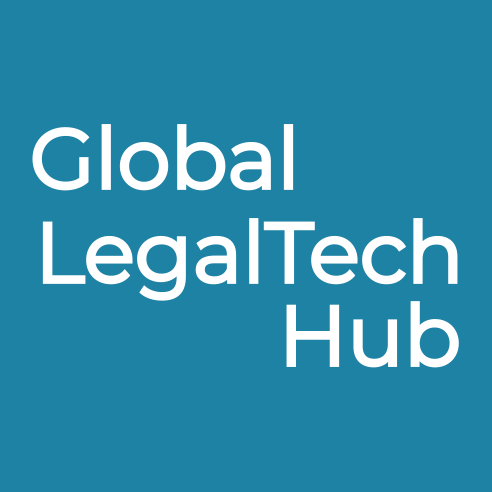María de la O: “AI is evolving rapidly, and many firms are missing out on its true potential”
- Mar 10, 2025
- 4 min read
By Pablo Yannone Sancho, Journalist at GLTH

When María de la O discovered the amazing lands of the legal tech world six years ago, she felt “fascinated”. She left the just “tech” world she belonged, where she used to work in software companies, and she started at Lefebvre Sarrut. Nowadays, she is the Head of Innovation of the Group, and her everyday life involves finding continuous transformative ways of using technology in the legal field.
This complex mission consists, many times, of asking for “forgiveness” rather than “permission”, as well as working with purpose. For Maria, curiosity is a driving force for change and is essential for making things happen.
As an advisor, she can teach us a lot about which the best tools to implement are and which should be used. On the other hand, as a human advisor, she can recommend very healthy ways of finding peace and inspiration, such as the art of crochet, which is one of her favourite hobbies: “moments of calm are interlaced, and knots in the mind are undone”, she claims. While she is focused on crochet, she likes to listen to some podcasts or audio-books about innovation, so that she can get other types of knots built in her refreshed mind.
Some pieces of advice about legal tech
Among the most commonly used tools, María highlights management software as a key component. “These tools”, says María, “are an essential part of our work; they help us stay organized and ensure that no detail is overlooked”.
Another “priority” in the legal field is information security software. María stresses its importance, stating that “the sensitivity of client data makes it crucial to have robust protection in place.”
When it comes to automating repetitive tasks, document automation and smart legal contracts stand out. These technologies streamline processes like drafting legal documents and managing corporate governance. “Automation saves us countless hours, allowing us to focus on more complex and meaningful work,” María points out.
Legal research has also evolved significantly with tools that offer fast access to case law and legislation. However, María notes that artificial intelligence is becoming a game-changer in this area. “AI-based solutions are transforming the way we work. Tools that analyze documents, predict case outcomes, and enhance legal research are making our daily tasks more efficient and accurate,” she shares. Besides, María considers that adopting AI allows lawyers to “offer a better service to their clients”, as they can dedicate more time to “strategy” and “problem-solving” rather than routine tasks.
According to her, these tools have the potential to significantly enhance the efficiency and effectiveness of legal work, but many of them remain underutilized! On the other hand, if they are being used, it is in a very simple way…
Maria emphasizes that “AI is evolving rapidly, and many firms are missing out on its true potential”. She envisions a future where AI could perform predictive analysis with greater accuracy to forecast legal outcomes; automate more complex tasks like document review and drafting, and provide real-time assistance during litigation and negotiations.
Lastly, María highlights the untapped potential of Legal Data Analytics. She notes that while big data is making strides in other industries, the legal sector is still in the early stages of leveraging it. “Firms should implement advanced analytics to identify trends in court decisions, optimize legal strategies, and improve risk management,” María suggests.
By using data to inform decisions, legal teams could better navigate regulatory compliance and minimize risks. She exemplified this to us by a need that an enterprise had and how a software from Lefebvre, GenIA-L, solved it,
The law firm faced excessive time on legal research, constant legislative updates and inconsistency in the quality of legal reports. In general, there was a lot of dissatisfaction among lawyers and clients.
To tackle these challenges, María and her team introduced GenIA-L, a generative AI tool designed to assist legal professionals with research, analysis, and information creation. Developed by Lefebvre, it is the first tool of its kind from a European legal publisher.
As a result, time spent on legal research was drastically reduced, allowing lawyers to focus on higher-value tasks; productivity increased across the team, as they could access the information they needed faster and more efficiently. The quality and consistency of legal reports also improved within the firm, ensuring that every client received top-notch advice, regardless of which lawyer handled their case.
This example reflects how the legal tech ecosystem has evolved in just “two years”. “As the pace of innovation accelerates around LegalTech, it is essential for stakeholders to adapt and move quickly to stay ahead”, claims María. She underlines the importance of collaboration among all actors and “keep humans at the center of this transformation”. “The world moves fast”, she says, “and if you’re not prepared and adaptable, you may miss out on invaluable opportunities. Stay ready, stay curious, and seize every chance to grow”.
Head of Innovation, Lefebvre Sarrut
